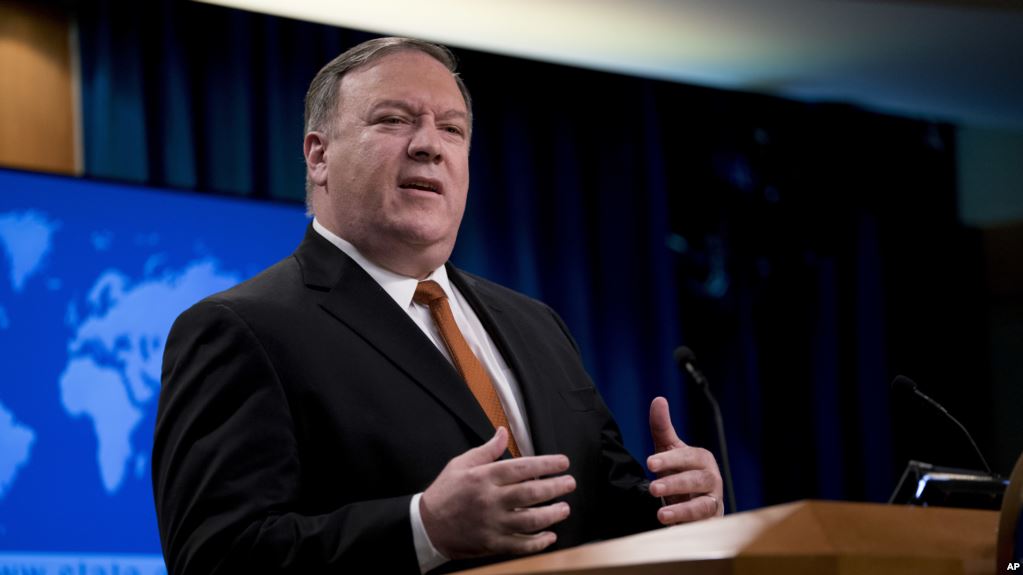US’s INF ultimatum to Russia
December 6, 2018 | Expert Insights

Secretary of State Mike Pompeo announced that the Trump administration would begin the formal process to scrap the landmark Intermediate-Range Nuclear Forces Treaty within 60 days unless Russia returns to compliance with the treaty’s terms.
Background
The Intermediate-Range Nuclear Forces Treaty (INF Treaty) is the abbreviated name of the Treaty Between the United States of America and the Union of Soviet Socialist Republics on the Elimination of Their Intermediate-Range and Shorter-Range Missiles, a 1987 agreement between the United States and the Soviet Union (and later its successor states, in particular the Russian Federation). Signed in Washington, D.C. by President Ronald Reagan and General Secretary Mikhail Gorbachev on 8 December 1987, the treaty was ratified by the United States Senate on 27 May 1988 and came into force on 1 June 1988.
The INF Treaty eliminated all nuclear and conventional missiles, as well as their launchers, with ranges of 500–1,000 kilometres (310–620 mi) (short-range) and 1,000–5,500 km (620–3,420 mi) (intermediate-range). The treaty did not cover sea-launched missiles. By May 1991, 2,692 missiles were eliminated, followed by 10 years of on-site verification inspections.
Analysis
US Secretary of State Mike Pompeo has issued an ultimatum to Russia over its alleged violation of the Intermediate-Range Nuclear Forces Treaty (INF Treaty). If Russia does not return to compliance by the deadline, the Trump administration will begin a formal, six-month process to end the treaty, Mr. Pompeo said. During those months, the United States will still not test or deploy missiles that would abrogate the pact, known as the I.N.F. Treaty, he said.
Mr. Pompeo received unanimous support from NATO allies for his contention that Russia was in violation of the treaty.
They issued a statement concluding that while Washington has abided by the 1987 treaty, which prevents the development and deployment of ground-based intermediate-range missiles, Russia has been violating it for years. The Russians have developed and deployed a ground launched cruise missile system, the SSC-8, also known as the 9M729.
NATO leaders urged Moscow to take steps to maintain the treaty. “We call on Russia to return urgently to full and verifiable compliance with the I.N.F. Treaty,” the NATO secretary general, Jens Stoltenberg, said. “It is now up to Russia to preserve the I.N.F. Treaty.”
Although it is unclear how he will react to Tuesday’s ultimatum, President Vladimir V. Putin of Russia has generally resisted Western pressure to change his government’s behavior, despite repeated rounds of sanctions. Maria Zakharova, the spokeswoman for the Foreign Ministry, denied assertions that Russia had broken the treaty. The state news agency TASS quoted her as saying that “Russia fully adheres to the treaty’s provisions. The American side knows that.”
Mr. Pompeo’s announcement came at the end of a day of meetings at NATO headquarters in Brussels. In October, the Trump administration said it planned to leave the treaty, alarming many of its closest European allies, who fear a new nuclear competition between Washington and Moscow, with Europe as the playing field. Some quietly complained the Americans should have done a far better job consulting with them before making such a decision.
Mr. Pompeo’s 60-day deadline could be seen as a gesture toward European worries, especially from Germany, which ever since the Cold War has been anxious about becoming the battlefield for strategic competition between the United States and Russia. In a news conference on Tuesday, Mr. Pompeo said that “our European partners” had asked for “an extended period,” and added, “We believe this is the right outcome.’’
Counterpoint
While the Trump administration pointed to years of treaty violations by Russia, there is another reason it wants to abandon the deal: The pact constrains the United States from deploying new weapons to respond to China’s growing militarization of the South China Sea.
The INF treaty is a bilateral agreement between the US and Russia only. China has stealthily developed its own ballistic missile capabilities without being subject to such limitations. The new ultimatum may be a way for the Trump administration to exit the INF treaty to form a new multi-party agreement which includes China and India as well.
Assessment
Our assessment is that the Trump administration will like to keep the INF treaty in force as it protects Western Europe from Russian ICBMs. We believe that the US may also look to form a new multi-party ballistic missile agreement which could include China and India as well.
Read More:








Comments